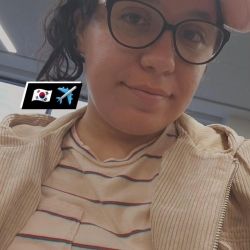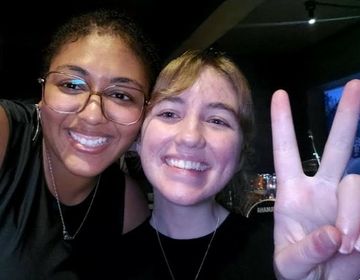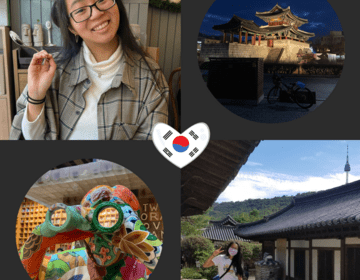What’s Next: Steps After Accepting an EPIK Placement
Remember feeling nervous about your interview with EPIK and that nervousness you felt waiting on the results. Not to mention waiting weeks and weeks to see where your journey would start in South Korea. Now, you finally have your placement to begin your journey as a native English teacher in South Korea, but what now? Can you purchase your plane ticket to South Korea now? Sorry, not quite yet. Before looking up the cheapest flight, you must complete a few things.
Copies will be your best friend: Prepare to apply for your visa
I know more paperwork to fill out, yay. On a serious note, you must stay on top of completing it. Without your visa, you won't be able to move on to purchasing your flight. You must wait for two EPIK documents: Notice of Appointment and Work Contract. While waiting for those documents, you can research the Korean consulate in your region to prepare the documents for your appointment. The CIEE EPIK canvas course is a beneficial tool for researching. It was also easy for me to find the correct consulate and quickly list all the required documents. I recommend that you make photocopies of all your documents. If some documents get damaged or lost, you have extra copies. I made the mistake of not printing out my visa application beforehand and having to print it out at the consulate. My experience with the Los Angeles consulate was a very straightforward appointment. If you are from a big city, give yourself an extra hour to drive to your appointment to beat the traffic, and if you are having trouble finding a parking space, you have that spare time before your appointment.
Prepare your finances and update your phone plan
Having a good amount of cash on hand when traveling abroad is crucial. If you haven't yet made an appointment with your bank to withdraw wons, I suggest not putting it off at the last minute. It takes about seven business days. I recommend scheduling a day that isn't close to any holiday weeks. It is a simple process that will take no more than 30 minutes to complete. I withdrew about 998 USD, about 1.3 million KRW, and lasted a good month and a half. For card payments, I used my Discover card. However, some establishments won't take US credit cards. I suggest requesting mixed bills when asking for wons at your back. So you don't have to pay for a 1,000 won item with a 50,000 won.
For the phone plan, I am part of T Mobile; they have an international pass for 30 days for $50. However, when I went to the store to ask in person about the plan, the staff member seemed to think I was asking if I could continue using a T-mobile while living abroad, and they initially told me that it wouldn't work. Until my mom and I researched an international plan on the t mobile website, where we discovered the 30-day international pass. Always double-check to see if an option is unavailable, even if someone tells you it's unavailable. Suppose your phone company doesn't have to provide an international pass; e-sims are the way to go.
Prepare your suitcase: Do not Procrastinate
Speaking as someone who has never owned a suitcase in their life, this was a big step for me. I purchased one bag from TJ Max and the other one from ROSS. I knew I wanted a big suitcase, but I didn't want to spend too much money on a suitcase. I spend roughly 130 USD for both suitcases. It is also a good rule of thumb to research the appropriate size of your suitcase. You can find the luggage size requirement on the airline websites or search "recommended size for luggage." That way, you won't have additional luggage fees. If your suitcase doesn't have a lock system, I recommend purchasing tiny locks at your local 99-cent store. It will protect your luggage and keep your luggage from unzipping during transportation.
As a person with a bad case of procrastination, believe me when I tell you to list what you should pack in your suitcase, buy any items you need early on, and pack them in immediately. I bought things I either forgot or couldn't pack into my suitcase because it was already full. So if you think you'll get to it later, you can do it at that moment, or else you will struggle to fit your towel into your already full suitcase the night before your departure, speaking from experience. Things to keep in mind when finding what you might need to take with you to Korea: any products that you might need that won't be available in Korea, such as specific skincare products or hair care products, pack a generous amount for at least three months and clothes, especially for winter to shop for before coming to Korea especially if you are not used to freezing winters or else you will find yourself wearing double sweater for 2 months before finally having a decent winter coat, again, speaking from experience.
We need PAPAGO! And more!
Of course, you are going to need the right apps on your phone for your journey beforehand. The first app you should download is Papago"; forget about Google Translate to help you translate. This translation app is very reliable and is widely used in Korea. My favorite feature is the picture translation. You might even have to use it when teaching in your classroom. You only have to take a picture of a text, and Papago will translate it immediately. The second app is "KakaoTalk," which is a very popular app for communication. It can also help connect to accounts for " KakaoMap" and "Kakaotaxi." Both of these apps will help you with transportation and navigating through Korea. Another navigation app I recommend is "Naver Map." I mainly use this because you can change the language to English. "Coupang" is another helpful app that you might use during your time in Korea. Coupang is a popular delivery app where you can find almost everything you seek. Finally, if you want to practice and learn more Korean, "Mango Language" is your app. You're probably thinking, " I have Duolingo to help me learn Korean." I am here to tell you if you want to learn deeply about the language and culture, you will download this app.
Connect with your thoughts and emotions about your new chapter
Mental health is just as important as packing your suitcase. Many emotions can start to occur when starting any new chapter. You feel happy, excited, and proud. You can also feel worried, stressed, and uncertain. Take time to process that you will be away from your friends and family. You will be in a whole different country. You won't just be visiting, but rather living in another country. You will be in charge of teaching students English. Maybe you have traveled abroad before but have never taught in a classroom. Perhaps you have experience teaching students but no experience living abroad. I believe it is expected to feel joy and grief during a process like this. I can tell you there is a difference between saying, " I am going to teach English in South Korea for one year" at the beginning of the EPIK application and " I am going to teach English in South Korea for one year" after your placement. It is essential to understand that you have worries. I recommend writing down the concerns you have in a journal or even on a piece of paper and looking at that same list of worries six months after landing and crossing off the ones you worked through.
Related Posts
CIEE CHINGU – A Partner Program for Teachers in Korea
Chingu ( 친구 ) is the Korean word for friend . CIEE Chingu is a partner program included in CIEE’s Teach in South Korea programs! Our goal is to connect... keep reading
TWICE with CIEE: Kayleigh in Korea (PART 1)
Kayleigh is a CIEE alum who participated in CIEE's Teach in South Korea program AND CIEE’s Teach in Spain Volunteer program! CLICK HERE to read her experience in Spain. WHY... keep reading
Learn Korean with K-Media: Advice from Valerie!
Hello! My name is Valerie, and I will be teaching in South Korea through the EPIK program starting this spring. With my interests being in Korean cultural studies, teaching in... keep reading





